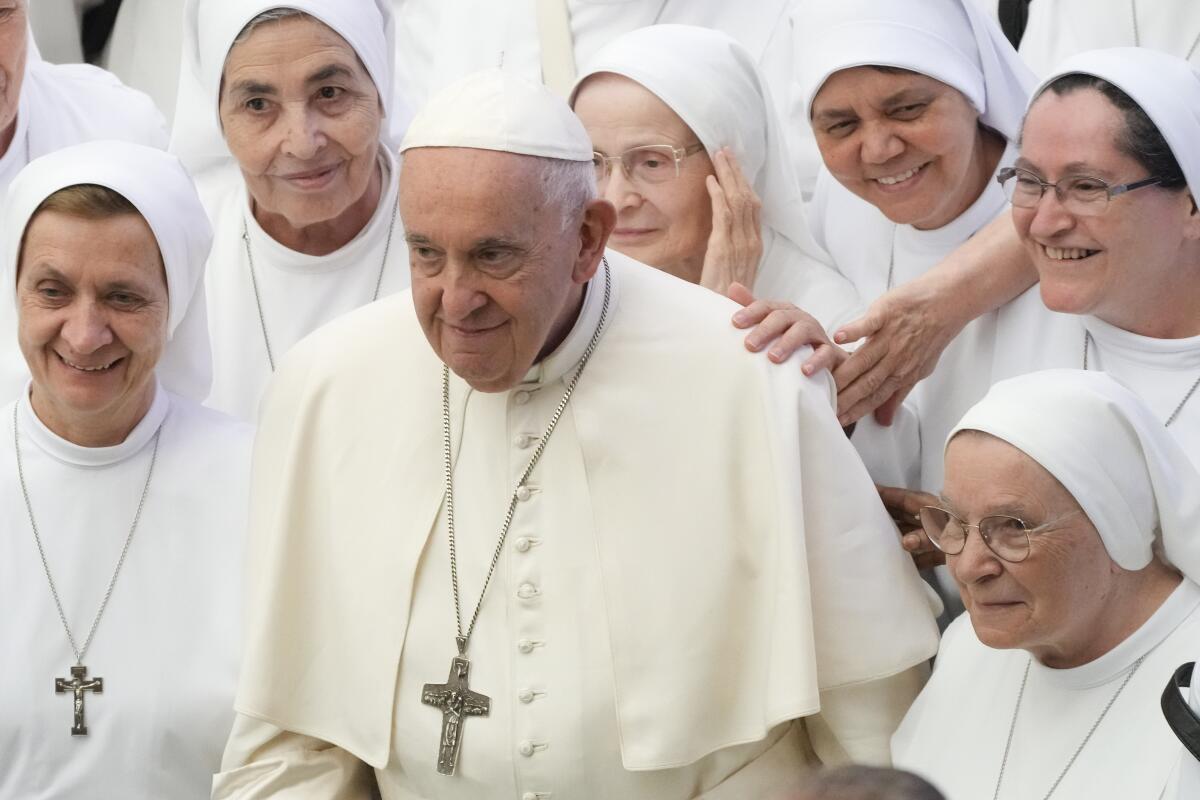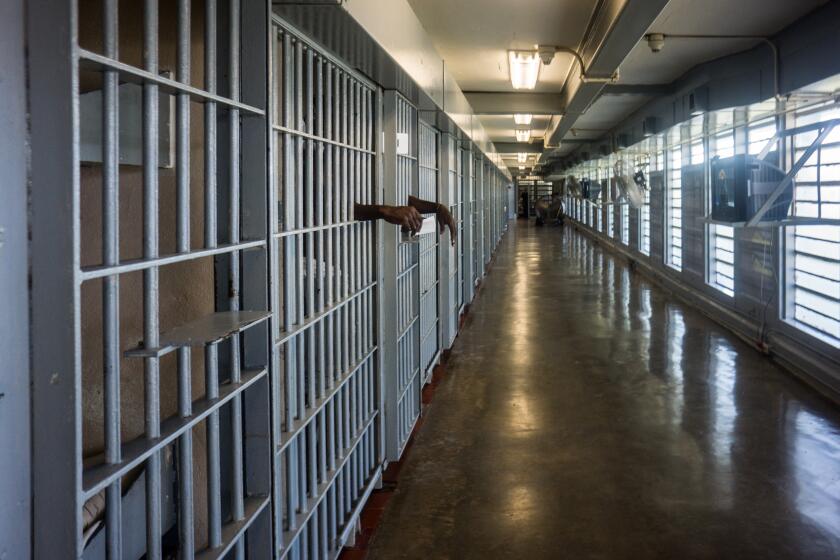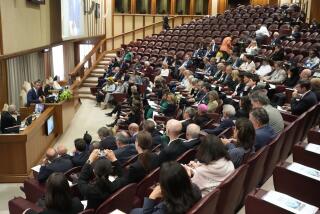Editorial: Pope Francis is right. World leaders have a moral imperative to abandon fossil fuels

- Share via
World leaders are doing embarrassingly little to stop the burning of fossil fuels that drive the worsening climate crisis. If they won’t heed the warnings of scientists, will they listen to the pope?
On Wednesday, Pope Francis issued an urgent new plea for climate action, a 7,000-word document that makes the case with precise scientific detail and a level of moral outrage that is too uncommon among other leaders of powerful institutions.
As world leaders gather this fall at the United Nations COP 28 climate summit, they would do well to follow the advice of the leader of the world’s 1.3 billion Catholics. The pope’s apostolic exhortation is addressed to “all people of good will on the climate crisis” and based on his realization that there’s been little progress made since his sweeping encyclical on the environment eight years ago.
After the feds rejected a petition to kick them off the endangered species list, these iconic marine mammals need assistance to reclaim more of their historical range.
“Our responses have not been adequate, while the world in which we live is collapsing and may be nearing the breaking point,” Pope Francis writes.
What follows is a sharply worded treatise that lays out the causes and magnitude of this spiraling global crisis and urges world leaders to take swift, collective action to abandon fossil fuels before it’s too late. In a text punctuated with footnotes to scientific reports, he shames powerful political and business interests standing in the way of climate action and warns of worsening damage if we do not change course quickly.
Cruel summer heat turns non-air-conditioned concrete prisons into ovens that cook the people inside alive. This is not justice. It is inhumane.
He also criticizes climate denial, even within the Catholic Church, and the fantasy peddled by the fossil fuel industry that we can rely on technological fixes like carbon capture and storage to solve our future problems, an idea he calls “homicidal pragmatism, like pushing a snowball down a hill.”
The document is aimed at influencing the U.N. climate talks that begin next month in Dubai and pushing negotiators to make binding commitments to slash emissions. The planet just experienced the hottest summer on record and is on track to log the hottest year ever recorded, with temperatures about 2.5 degrees Fahrenheit higher than in preindustrial times. It’s never been clearer how badly we need real action.
California’s climate lawsuit against big oil companies isn’t only notable for its pursuit of industry accountability for the damage being caused by fossil fuels. Just as important is its potential to end decades of industry deception about climate change.
The pontiff wants world leaders at the climate summit to “transcend their petty interests” with binding measures to replace fossil fuels with renewable energy that are “efficient, obligatory and readily monitored.”
Though Pope Francis maintains some optimism — “to say that there is nothing to hope for would be suicidal,” he writes — his letter is an urgent and despondent plea for radical change, more like a fiery activist’s speech than a theological rumination.
Francis laments a broken and inequitable global political system that, despite years of negotiations and agreements, has failed to curb this existential threat. He takes aim at rich, high-polluting countries, including the United States, for an “irresponsible lifestyle” and an outsize role in causing suffering in poor countries that are responsible for a “minimal portion of historic emissions.” He quotes bishops from the Amazon basin and Africa who decry humanity’s “attacks on nature” and call climate change “a tragic and striking example of structural sin.”
We need more spiritual leaders to step up and make clear what a moral failing it is for politicians to continue a fossil-fuel-based system that harms us all and consigns future generations to grave suffering. Religious leaders of all creeds should spread the word that our planet’s fate rests in humanity’s hands.
More to Read
A cure for the common opinion
Get thought-provoking perspectives with our weekly newsletter.
You may occasionally receive promotional content from the Los Angeles Times.













